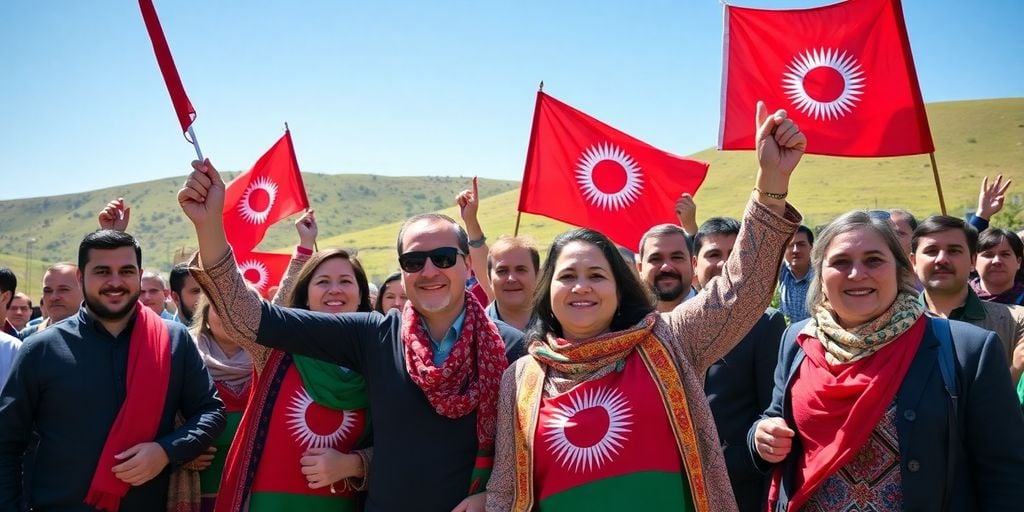The Kurdistan Workers’ Party (PKK) has officially announced its decision to disband and end its armed struggle against Turkey, marking a significant turning point in a conflict that has lasted for over four decades. This decision, influenced by the group’s imprisoned leader Abdullah Ocalan, aims to resolve the longstanding Kurdish issue through democratic means.
Key Takeaways
- The PKK has declared an end to its armed struggle and will dissolve its organizational structure.
- The decision follows a congress held in northern Iraq and is seen as a response to changing political dynamics in the region.
- Turkish President Recep Tayyip Erdogan welcomed the announcement, viewing it as a step towards a "terror-free Turkey."
- The conflict has resulted in the deaths of over 40,000 people since its inception in 1984.
Background of the PKK Insurgency
Founded in 1978, the PKK initially sought to establish an independent Kurdish state in Turkey’s southeast, where Kurds make up approximately 20% of the population. Over the years, the group’s goals shifted towards advocating for greater autonomy and rights for Kurds within Turkey.
The conflict has had devastating consequences, leading to significant loss of life and economic strain on the region. The PKK has been designated a terrorist organization by Turkey, the United States, and the European Union.
The Announcement
In a statement released on May 12, 2025, the PKK declared that it has completed its "historic mission" and will cease all military operations. The decision was made during a high-level congress attended by PKK leaders, where they voted to dissolve the group’s organizational structure.
Ocalan, who has been imprisoned since 1999, called for the disbandment earlier this year, urging the PKK to pursue a peaceful resolution to the Kurdish issue. The group emphasized that its struggle has brought the Kurdish issue to a point where it can be resolved through democratic politics.
Reactions from Turkey
Erdogan’s government has responded positively to the PKK’s announcement. The Turkish President stated that this decision represents an important threshold towards achieving a peaceful and stable Turkey. He emphasized the need for careful monitoring of the disarmament process to ensure that promises made are fulfilled.
Omer Celik, a spokesperson for Erdogan’s ruling party, expressed hope that the end of the PKK’s armed struggle could lead to a new era of peace and stability in the region.
Implications for the Region
The dissolution of the PKK could have far-reaching implications for Turkey and its neighbors, particularly in Iraq and Syria, where Kurdish forces have been active. The PKK’s decision raises questions about the future of Kurdish fighters in these regions, especially those affiliated with the Syrian Democratic Forces (SDF), which the U.S. supports in the fight against ISIS.
While the PKK’s announcement is a significant step towards peace, analysts caution that challenges remain. The specifics of disarmament and the fate of PKK fighters are still unclear, and there is concern about potential splinter groups that may not adhere to the peace initiative.
Conclusion
The PKK’s decision to end its insurgency against Turkey is a historic moment that could reshape the political landscape in the region. As both sides navigate the complexities of this new phase, the hope for lasting peace and stability remains a critical focus for all involved.
Sources
- Kurdish PKK militants announce decision to dissolve after decades of conflict with Turkey, CNN.
- Kurdish militant group PKK announces plans to disarm after decades of conflict, Fox News.
- Kurdish PKK ends 40-year Turkey insurgency, bringing hope of regional stability, Reuters.
- Kurdish militant group PKK says it will end insurgency against Turkey, The Washington Post.
- Kurdish PKK will disband and disarm as part of peace initiative with Turkey, AP News.






